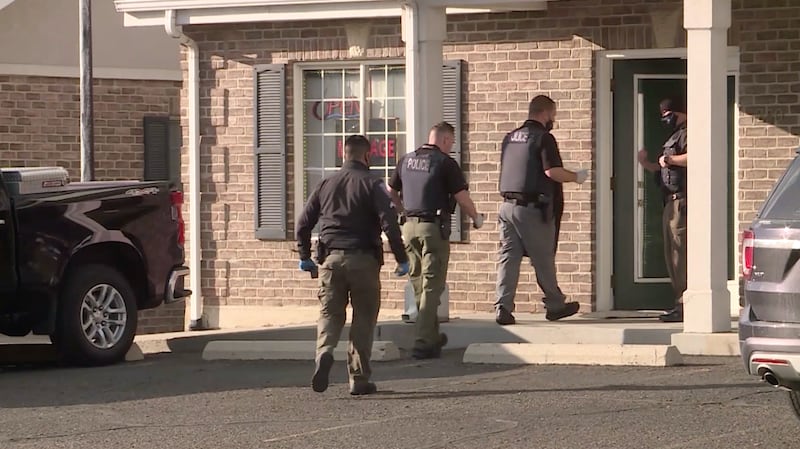Despite public perceptions that human trafficking is an “international problem,” it is occurring in urban and rural areas of Utah, according to a new report by the Utah Women & Leadership Project at Utah State University.
Authors of the report uncovered several indications of the prevalence of human trafficking in Utah:
- In 2020, the National Human Trafficking Hotline received 182 contacts and about 64 reported human trafficking cases in Utah. The previous year, 157 victims and 39 traffickers were identified.
- In 2018, the Utah Attorney General’s Office conducted 49 human trafficking investigations and reportedly prosecuted eight cases and served 44 victims.
- In February of 2021, six people were arrested for human trafficking and prostitution in massage parlors in Utah County, following an undercover investigation.
The researchers’ review of federal court cases in 2020 in Utah indicated 98% of victims of sex trafficking were female and 60% of victims of forced labor were male.
“These rates only reflect those who are identified, rather than the actual rates of those trafficked. We assume the actual numbers are much higher,” said Susan Madsen, founding director of the UWLP and one of the report’s four authors.
Anyone can be trafficked but certain populations are particularly vulnerable to exploitation and should be centered in anti-trafficking efforts.
According to the report, factors that increase vulnerability to trafficking include substance dependence, homelessness, sexual, physical, and emotional abuse, running away from home, involvement with the foster care system and being formerly incarcerated.
While people who are unauthorized to be in the United States are highly vulnerable to sex and labor trafficking, 49% of the human trafficking survivors served by the Asian Association of Utah in 2020 were U.S. citizens or legal permanent residents. The association serves survivors of all ethnicities.
According to the report, 68% of the survivors served by the association were female, 81% adults and 51% foreign nationals. Half of the clients were victims/survivors of sex trafficking, 46% labor trafficking, and 4% combined sex and labor trafficking.
The top sex trafficking settings in Utah are hotels, public streets and massage parlors. Utah’s top labor trafficking settings are hotels, restaurants and agricultural areas, according to the report titled “Human Trafficking Among Utah Girls and Women.”
The report dispels the common belief that traffickers kidnap strangers from the street, said Lindsay Gezinski, human trafficking researcher and the report’s lead author.
“The research shows us that traffickers may be acquaintances, friends, romantic partners or family members. In addition, victims may be lured by fake job advertisements, staffing agencies and false promises of employment. While the situation is daunting and frightening, there are things we can and must do,” Gezinski said in a statement.
Because traffickers may be known to the people they prey upon, victims may not recognize that they are ensnared in human trafficking. “They may be unlikely to self-identify due to concerns of retribution from or trauma bonds with traffickers, or may also distrust law enforcement and fear deportation,” the report states.
Madsen said the report’s findings reflect the impact of power dynamics between men and women.
“Any area that has different dynamics between men and women ... you’re going to have more abuse, bottom line,” she said.
Madsen said there can be crossover of survivors of domestic abuse, sexual assault and human trafficking.
The report suggests that Utah can combat human trafficking with a multi-pronged approach including public policy, social welfare, health care, education and the criminal justice system.
The report recommends prevention measures such as community- and school-based education to help curtail human trafficking before it happens.
Recognizing the signs of trafficking and providing support is key. “Screening tools may be used in social service, educational, medical, immigration and criminal legal settings to identify and assist victims and survivors,” the report states.
Last, interventions are crucial to eliminate the threats of human trafficking so survivors can receive the immediate and long-term assistance they need to rebuild their lives and avoid revictimization.
The Human Trafficking National Hotline can be reached 24/7 at 1-888-373-7888 or text “HELP” to 233733 (BEFREE).



